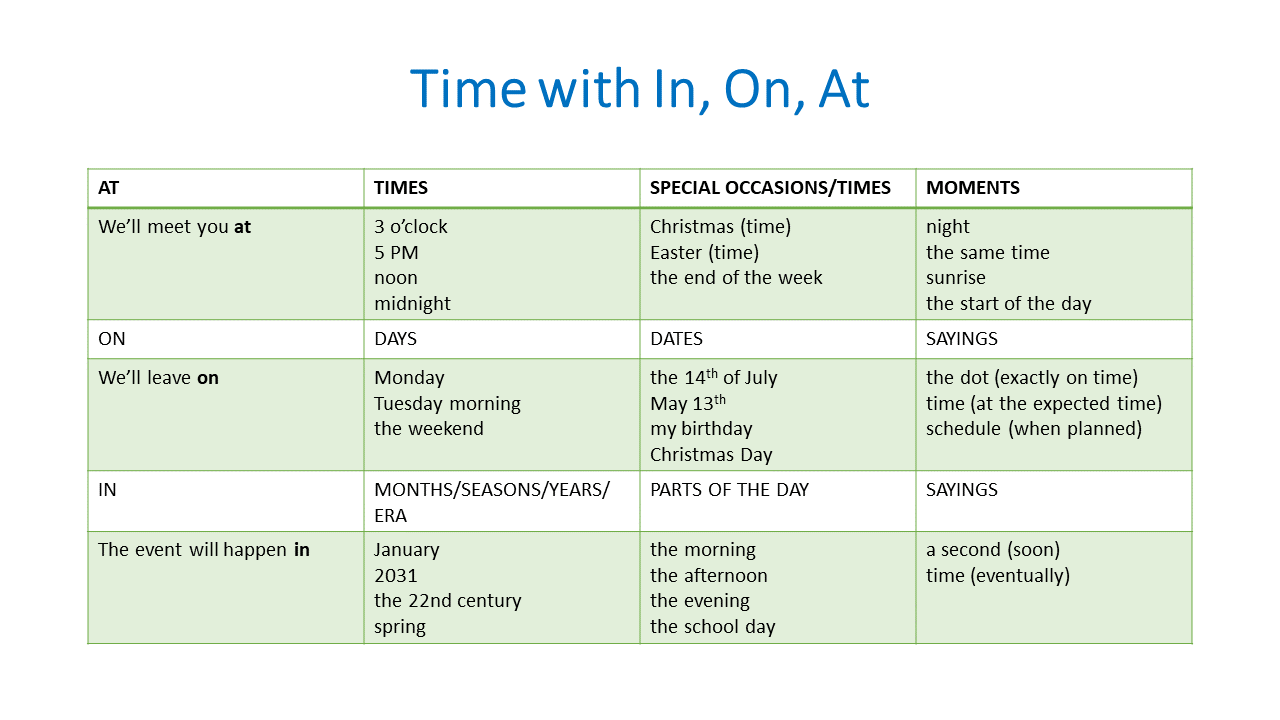|
11/26/2022 0 Comments Tricky PrepositionsA Preposition is a word that usually comes before a noun or pronoun to show time, place and direction. It is a word that shows a relationship between one word in a sentence to another word. Some examples are...
above, across, after, along, among, around, as, at, before, behind, below, beneath, beside, between, beyond, by, down, during, except, for, from, in, inside, into, like, near, of, off, on, onto, out, outside, over, since, through, throughout, to, toward, under, underneath, until, up, upon, with, within, without Using prepositions can get a bit tricky when we use them with various place and time concepts. Below are some charts to help point out the generalized rules of use.
0 Comments
K-12 classrooms have been moving away from seminar-styled learning for a while now. Some people refer to this type of teaching as “the sage on the stage” and that isn’t a compliment. I’ve heard this style of teaching called old-fashioned, teacher-centered, and outdated, yet I love learning from seminars. They are however more challenging for some learners, especially for students who have less experience with them and young children with short attention spans.
K-12 education has been moving toward a more student-centered approach. With this approach, learning has become more group-oriented and discovery based. This style of learning works well for some learners, especially those who lean more to extroversion and bottom-up thinking. More recently there has been more attention given to a learner-centered approach. This is my preference because there is more consideration for how learners learn, and that’s my jam. However, we don’t always get the choice to learn how we prefer, so it’s good to know how to adapt to the various teaching styles. Whether you prefer a seminar-styled lecture or recorded class or not, it’s great to know how to use it to your advantage. Note-taking can work well with online or seminar classes. Videos and podcasts are terrific in that you can pause and rewind whenever you want. With live classes, you don’t have this option so it’s important to keep your note-taking manageable. Focus on taking notes of big ideas and worry less about details that can be googled. Developing shorthand that’s meaningful to you can also be very useful. On the other hand, I know a university student who has great study skills, and she chooses not to take notes. She finds notetaking too distracting, so she listens intently for comprehension of what the professor is saying. She still makes study notes, but these are done from the readings, other handouts, and her own research. The bottom line is, know yourself. Know your learning strengths and preferences and find ways to learn when you don’t have the choice of how you learn. When it comes to listening to a "sage on the stage", and that sage knows what they’re talking about, why not hear what they have to say? |
Stacey Hernberg with the Learning TeachThroughout my career of nearly thirty years, I’ve come to value the process of teaching learning skills and knowledge alongside academic content. Having a strong ability to learn independently has always been a valuable trait. Now more than ever, I believe it is important for students to be aware of the role they play in their own learning. ArchivesCategories |



 RSS Feed
RSS Feed
